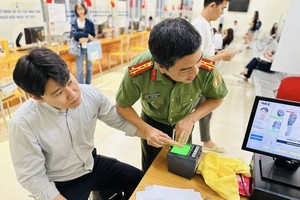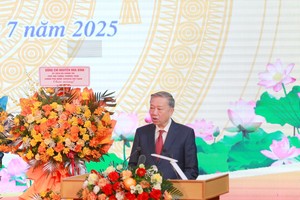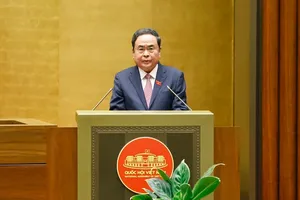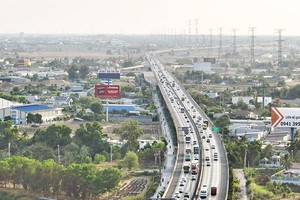The government of Vietnam has succeeded in restoring significant level of macroeconomic stability in the past few months but the efforts are only half done, so the authorities need to remain vigilant against premature withdrawal of stabilization measures, the World Bank said Thursday.
The WB made the remark in its report “Taking Stock: An Update on Vietnam’s Recent Economic Developments June 2011” released Thursday.
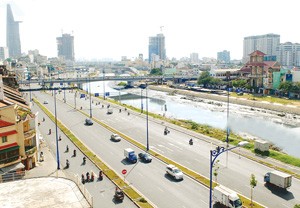
“Following the successful completion of the XIth Party Congress in January and the celebration of the Lunar New Year in early-February, the authorities moved swiftly to address the macroeconomic problems facing the country,” the report reads.
“The dong was devalued by 9.3 percent against the US dollar on February 11, 2011, and Resolution 11 was approved on February 24, 2011. Resolution 11 contains a wide range of bold, mutually reinforcing and consistent monetary and fiscal policy targets and commits the government to undertake several structural measures including reform of the state-owned enterprises, improving communication with the market and protecting the poor from future episodes of macroeconomic instability.”
According to the WB, efforts to stabilize the Vietnamese economy, while well begun, are only half done.
“Despite initial skepticism, the measures adopted under the Resolution 11 have started to show results towards regaining Vietnam’s macroeconomic stability,” the WB wrote in the report.
“The parallel market has disappeared and for the first time in three years, the dong is trading in the inter-bank market below the official central rate. The State Bank of Vietnam has started to purchase dollars in the inter-bank market, thereby building up much needed international reserves.
“Vietnam’s sovereign bond spreads have steadily declined in the past few months. But there are plenty of macroeconomic risks in the system that can easily reverse the hard-earned gains of the past three months,” the report reads.
Therefore, initial success notwithstanding, the authorities need to remain vigilant against premature withdrawal of stabilization measures, according to the WB.
The global lender alerted, “With growth expected to slow down in the second and third quarters of 2011, there could be demands from various quarters to relax monetary and fiscal policies and to go slow on structural reforms.”
The WB report mentioned three milestones for Vietnam to achieve if it is to continue to effectively implement Resolution 11.
The first is to bring inflation down to a stable, single-digit rate. The second is foreign exchange premium is completely eliminated. The third is the level of international reserves is adequate to finance at least 2.5 months o prospective imports.
The WB said it expects gradual improvement in Vietnam’s economic situation during the second half of 2011.
The report said the inflation rate is expected to peak in the second quarter and then gradually fall to around 15 percent by the end of the year. The current account deficit is expected to be around 5 percent of GDP and the foreign exchange market should remain stable in the foreseeable future.
With macroeconomic stability gradually returning, internal capital flight should subside in 2011, helping Vietnam’s State Bank to accumulate reserves faster, the report reads.
“We expect economic growth in 2011 to be slightly under 6 percent, with significant upside potential in 2012. However, our outlook is exposed to a number of downside risks. Those risks include premature withdrawal of stabilization measures, resurfacing of problems in the banking and state-owned enterprise sectors and continued increase in global commodity prices or a full blown sovereign debt crisis in Europe and its contagion effect on the rest of the world.”
